The 6½ reference books every library needs
Read them before you die or else meet them in heaven
What to make of the continued success of Depths of Wikipedia? The clever Instagram account run by Annie Rauwerda — which has 225,000 followers, a merch store, and an associated TikTok — is all about curating rabbit holes. She finds and posts screencaps of entries like the Jesus Nut (the main rotor attach nut in some helicopters) and the very short poem “Lines on the Antiquity of Microbes” (Adam/Had ’em).
The product is a dependable stream of serendipity, an airy-fairy virtue of ole-timey reference material that the digital age kicked to the curb in favour of speed, ease, and crowd-sourced accuracy.
Wikipedia has long tried to plumb its own depths. There are featured articles on the main page and a random article feature, though each of those lack the esoteric eye of a distinct human curator. And that, ultimately, is the most valuable thing we’ve lost with the decline of printed reference: The book that pretends to be an objective authoritative guide to everything but occasionally reveals itself to be one crank’s vision of how things really ought to be.
And so the following 6½ reference books that you simply must own are the work of singular oddballs. Some have apostles who have continued their work; others presented their volumes to an ungrateful world. All have that curational sensibility, the underlying conceit that if you got lost on the way to looking something up, it would be time well spent.
1. The Timetables of History
The ultimate aim of any good reference book is something like, “Hold my drink, I’m just gonna cram all existing knowledge and erudition into a couple hundred pages of printed matter,” which is both noble and ridiculous and thus perfectly human. In that sense, The Timetables of History is the uber-reference: A year-by-year charting of all of human history that identifies key events in politics, literature, religion, philosophy, arts, science, and — the best category by far — daily life. Once you know this book was translated from the German, the Kulturfahrplan makes a bit more sense.
When you learn that: Da Vinci painted the Mona Lisa in 1503.
You also find out that: That was the same year the pocket handkerchief came into use.
2. Brewer’s Dictionary of Phrase and Fable
First published in 1870 to bring erudition to the working classes, this English institution mixes factual entries on Greek gods with mini-essays like “Boredom appears to have been discovered around the middle of the 18th century. No doubt people had been bored before then, but evidently they could not be bothered to think of a word for it.” In the words of the book jacket: “Take the scenic route to knowledge.”
When you learn that: Goldenballs is an insult that dates back to 1086.
You also find out that: The Golden delicious is an apple that “seldom entirely lives up to its name.”
3. The New Biographical Dictionary of Film
The ultimate summation of one man’s opinions. That man is film critic David Thompson, and he’s been revising his magnum opus for the last 45 years. I remember looking up Wes Anderson in the fourth edition and being surprised to find only the sniffy words “Watch this space.” And then in the fifth edition, he rewards the persistence. Bonus: GWQ No. 89 subject Geoff Dyer cites it as his comfort read and “an inexhaustably wonderful cosmology”
When you learn that: “The mealy-mouthed praise that [ The Life Aquatic and The Darjeeling Limited] have had from Anderson loyalists will serve no purpose.”
You also find out that: If Paul Thomas Anderson “is as good as he thinks he is (and I think he is), there are bloody battles to come.”
4. The Dictionary of Drink and Drinking
“Surely there are few educated and balanced people of the Western Civilization who are not pleasantly interested in some phase of drinks and drinking,” Oscar Mendelsohn (“an Australian, an author, public analyst and wine-lover”) says by way of introduction to this labour of love. I found a well-worn copy The D of D and D at a garage sale and reader, it made my week.
When you learn that: Visitors at a childbirth ought to be served groaning beer.
You also find out that: “The gentleman at a Canadian logging celebration elected to control the drinking” is called the Grog Boss.
5. Dreyer’s English
Copy editors are like priests, safeguarding their faith. So a famous actress once told Benjamin Dreyer, copy chief of Random House, and he took it to heart. This 2019 book is not so much a Bible of English usage as a chatty commentary that owns its fallibility. Most useful when you’d to explain a grammatical concept without sounding like you just looked it up.
When you learn that: The “only” comma sets off a unique but inessential piece of information at the end of a sentence.
You also find out that: Elizabeth Taylor’s marriages made grammatical sense.
6. The Cassell Dictionary of Slang
The internet has definitively failed at producing a decent slang dictionary, probably because a legion of 13-year-old boys have filled Urban Dictionary with sexual nonsense. A great slang dictionary applies the driest etymology to the saltiest phrases, and the result ought to be like picking up something filthy with a pair of sterile tweezers. My library contains three slang dictionaries (NBD!) so to choose the granny grunt (n., 1930s, US Black, a mythical figure to whom otherwise unanswerable questions are referred), I asked some knowledgeable associates which word they’d look up to test such a tome. The Cassell Dictionary gave the competition a macing (n,. 19C, a severe thrashing, the prizefighter Jem Mace 1831-1910). Compiler Jonathon Green defines slang as “the counter-language … a jackanapes lexicon of the dispossessed,” and he lives up, down, and sideways to that definition.
When you learn that: Bozak means what you assumed it meant, Greg.
You also find out that: West Hollywood’s gay neighbourhood was once called the Swish Alps.
6½. Crosbie’s Dictionary of Puns
OK, no one really needs a dictionary of puns. But bravo to John S. Crosbie, Canadian ad man who claimed to have published the first reference volume of its kind in 1972 because “a day without puns is a like a day without sunshine; there is gloom for improvement.”
When you learn that: Wrapsody in Glue is a song parody about do-it-yourself wallpaper.
You also find out that: This book makes a fine projectile, which is why this is a half-hearted inclusion.
Obviously this list is comprehensive, but in the infinitesimally unlikely event that I’ve missed a key reference book, please let me know.
Isn’t it odd that the 95th issue of Get Wit Quick was silent on the subject of books of quotations? In the words of Douglas MacArthur, I shall return. My book Elements of Wit: Mastering The Art of Being Interesting, was more irreverent than referential, which is why it’s shelved in the irreference section. As you’re preparing to not lay out your outfit for World Naked Gardening Day this Saturday, do take a detour to tap the ❤️ below.


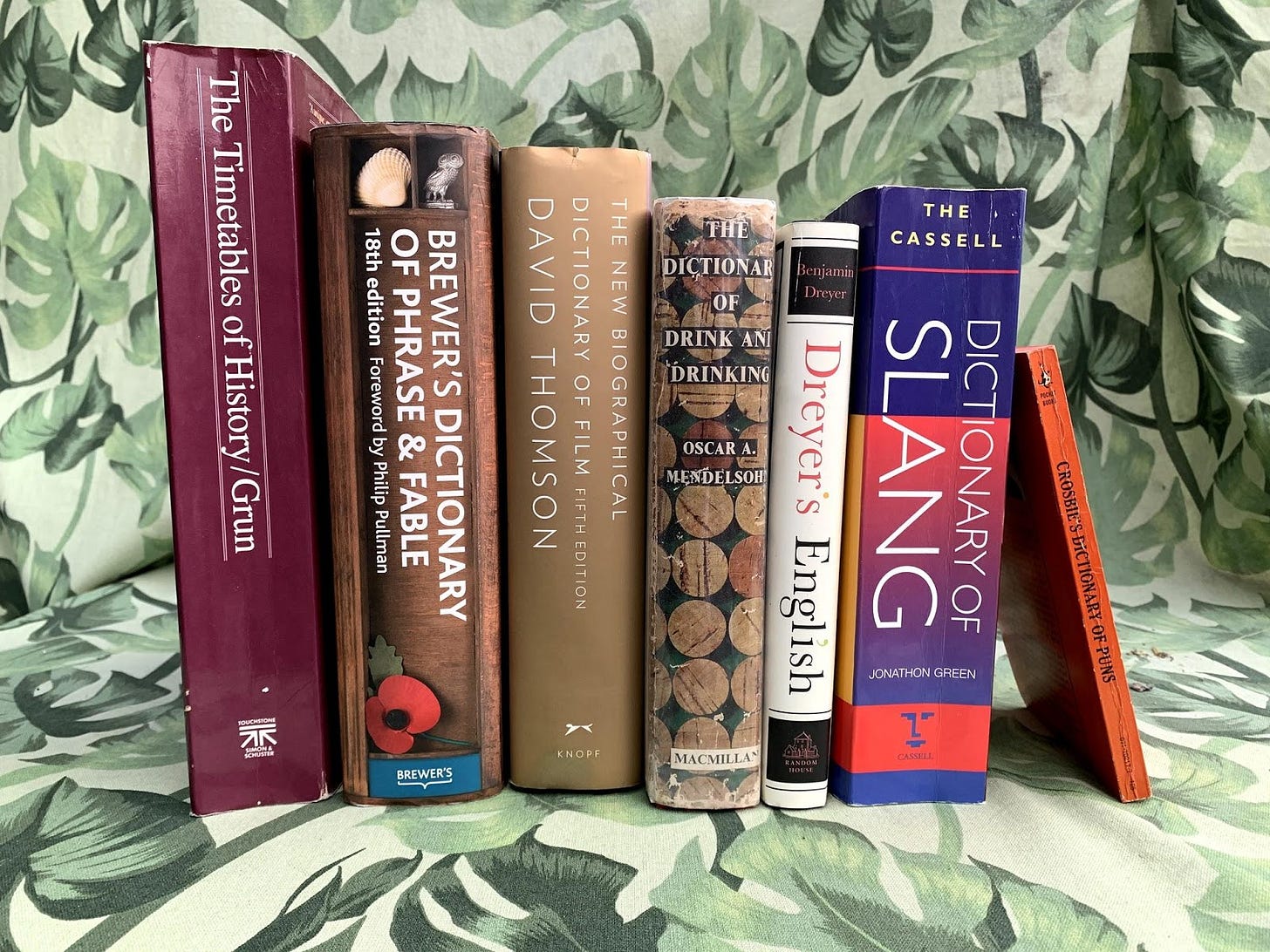
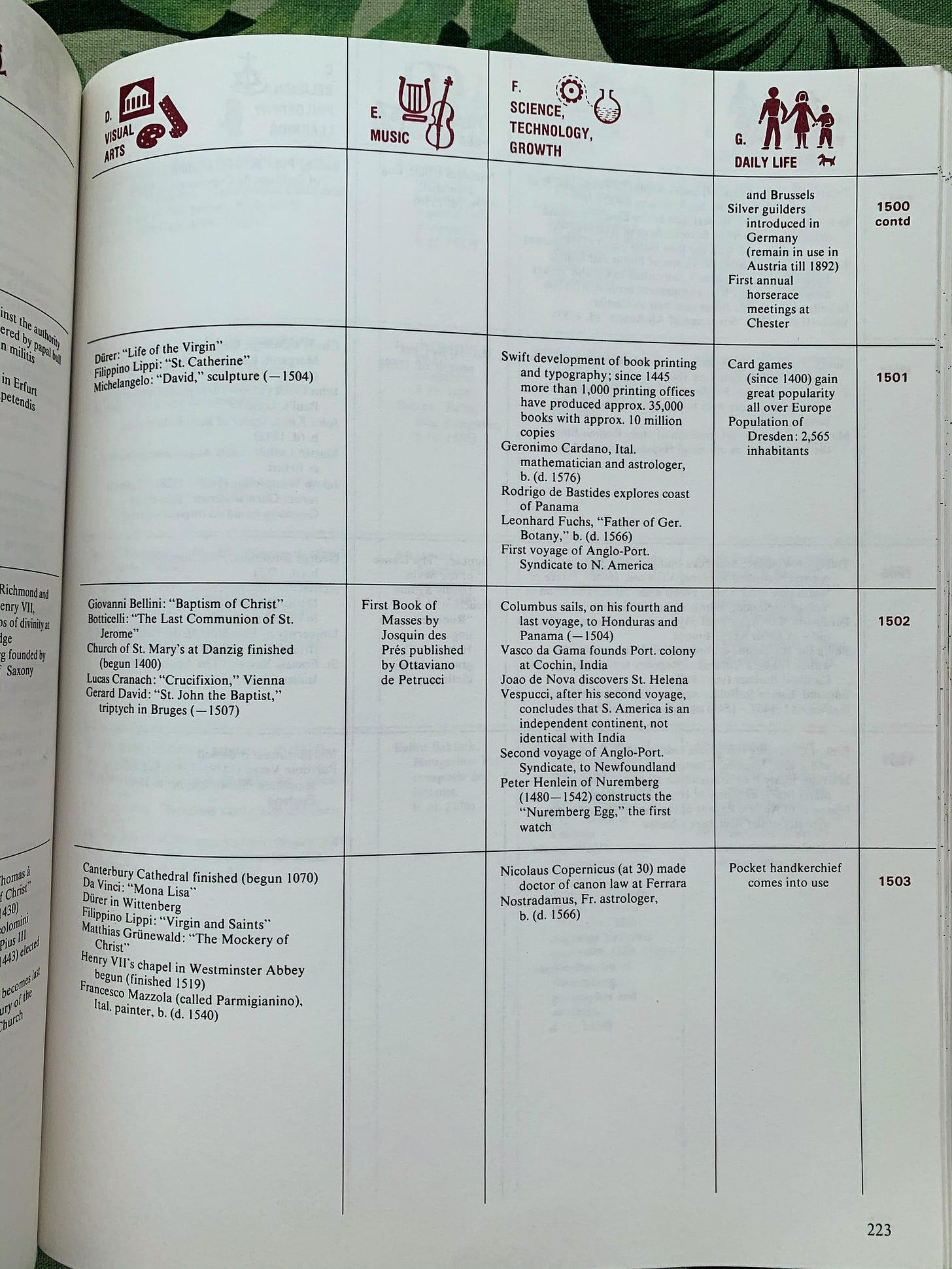
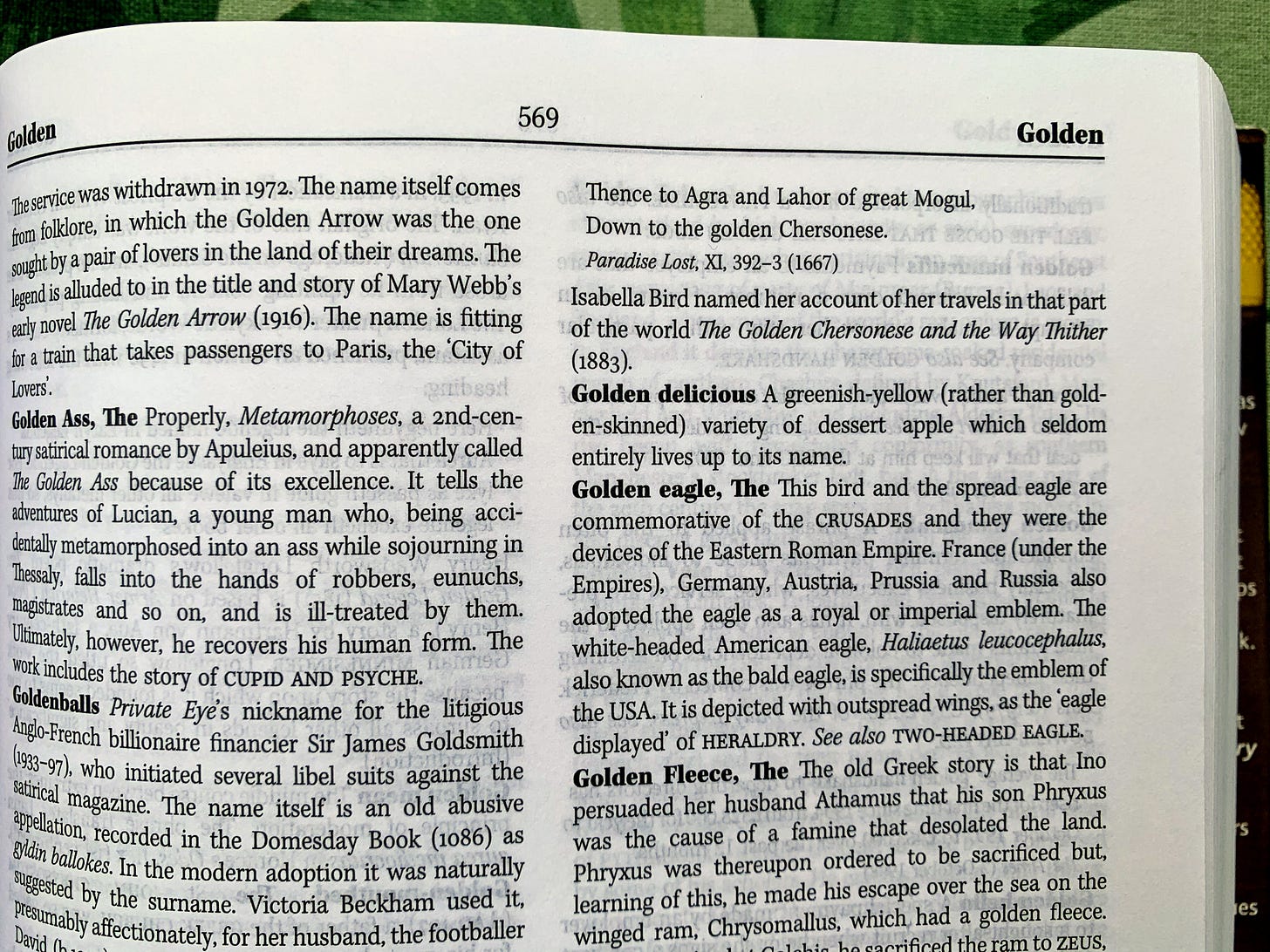
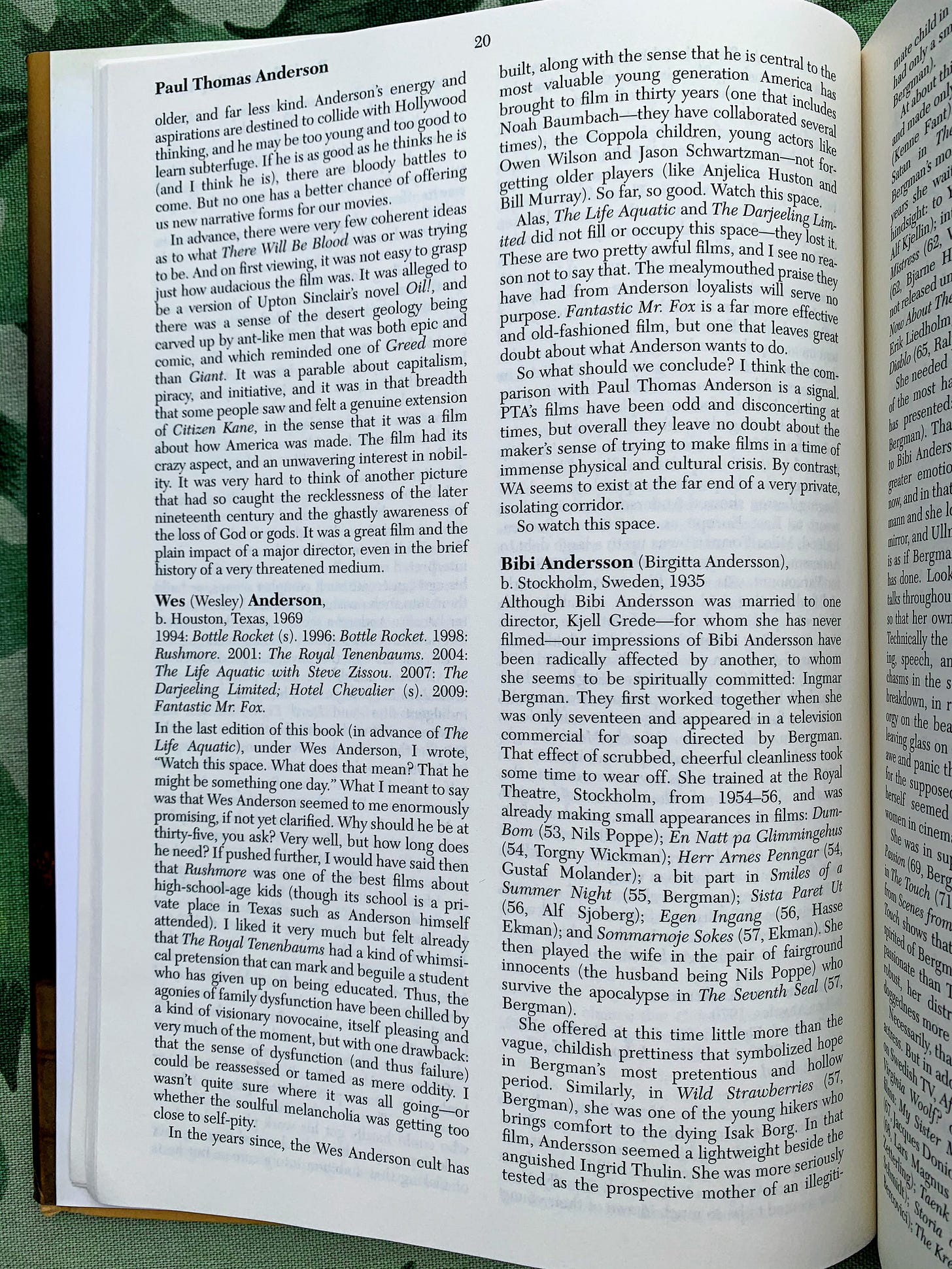
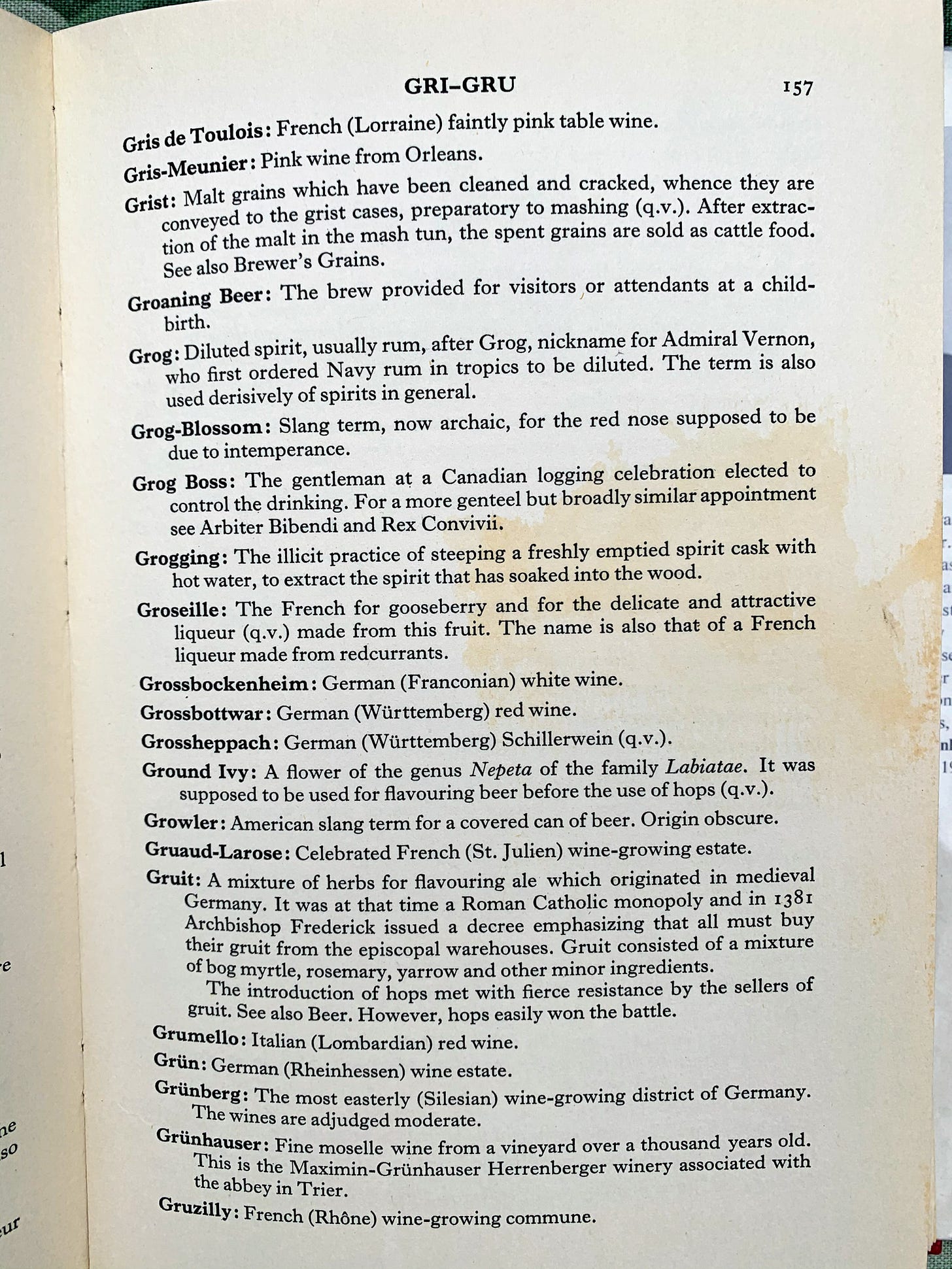
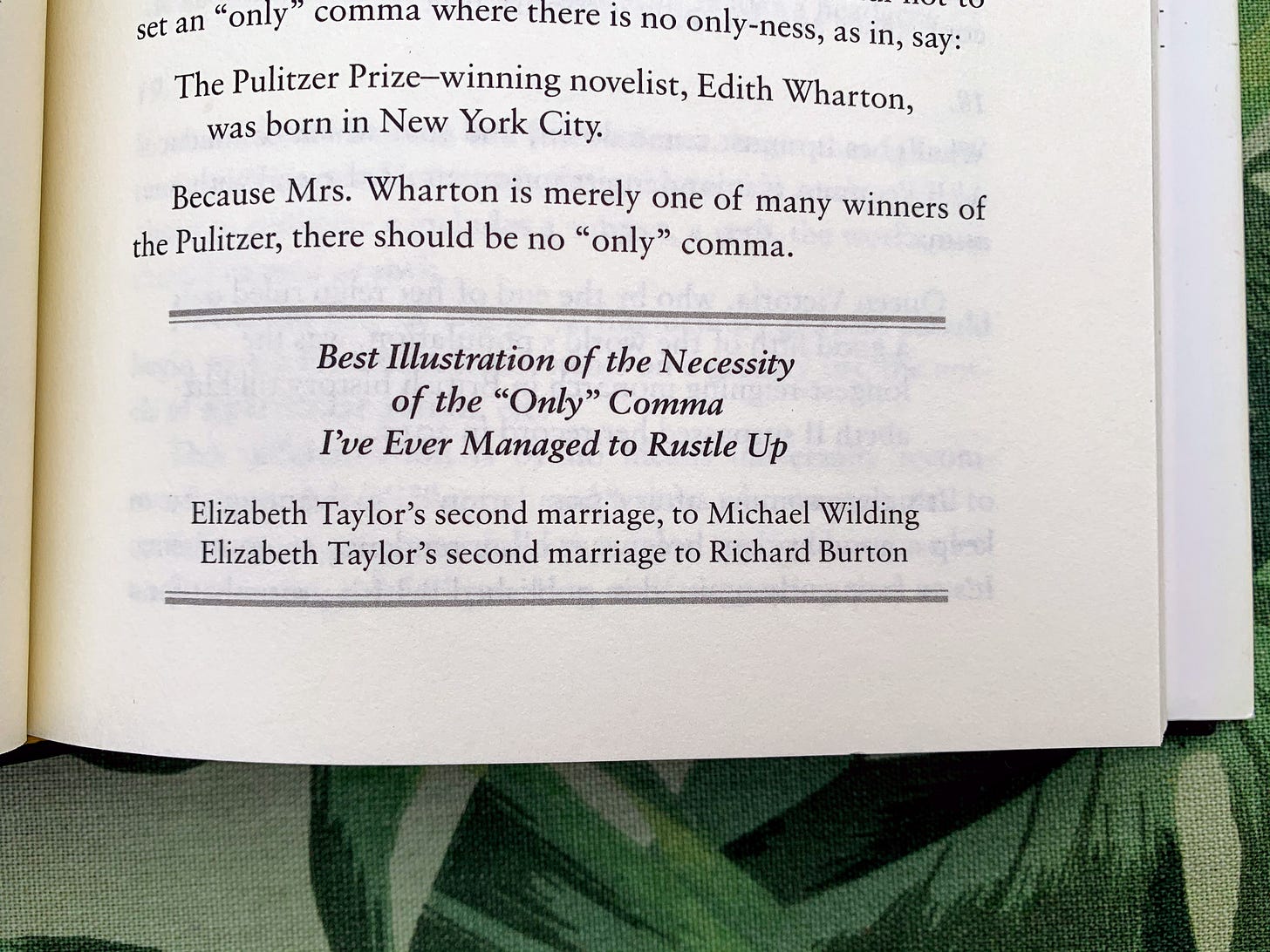

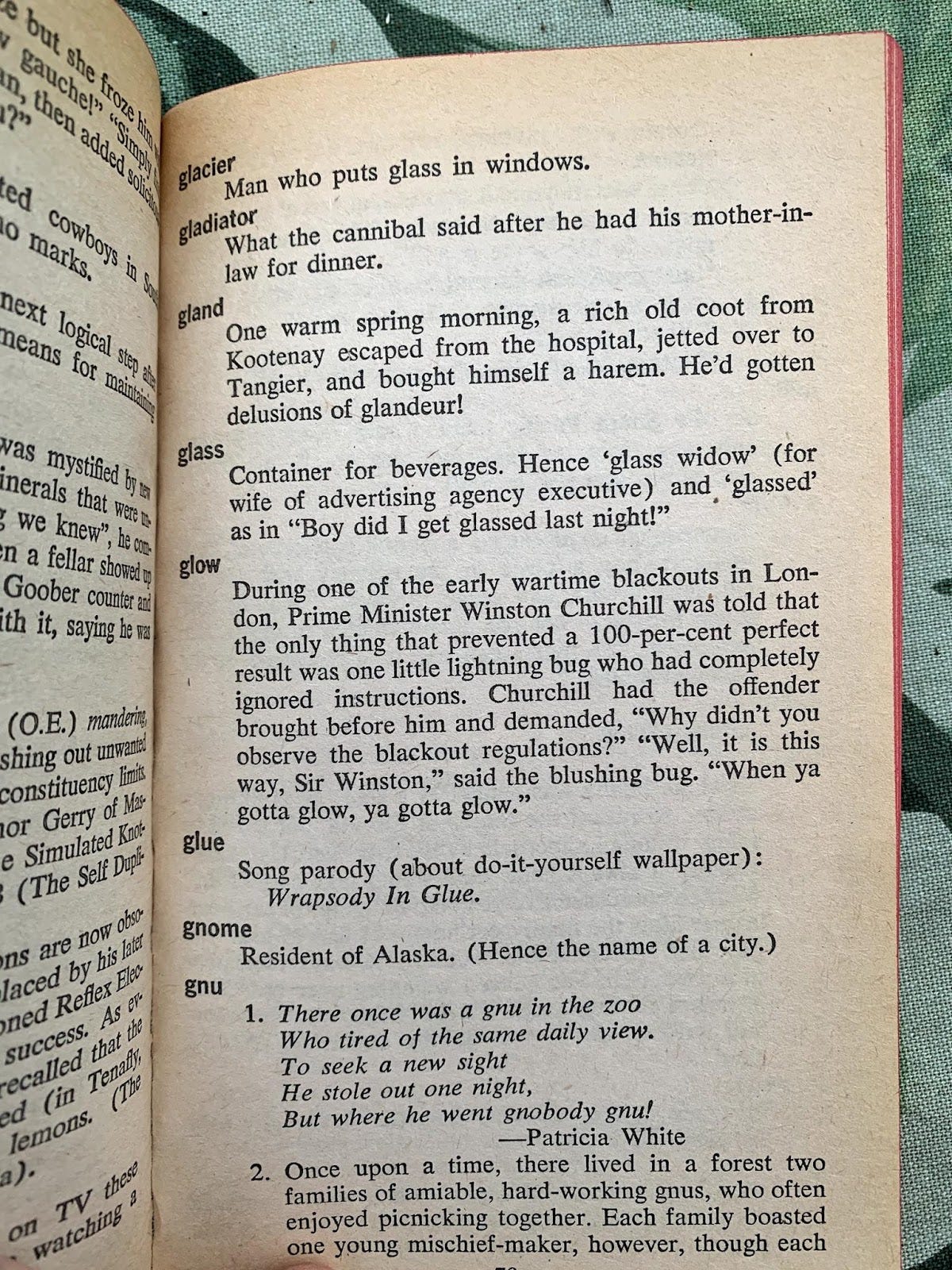
omg omg hi I'm annie and I run depths of wikipedia. thanks for these kind words! :)
Thomson’s New Biographical Dictionary Film- the only book from this list I own- is so good that I am going to take the other suggestions completely on faith and stock up.
Thanks Benjamin.